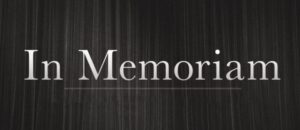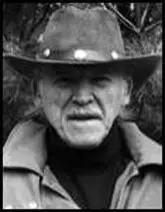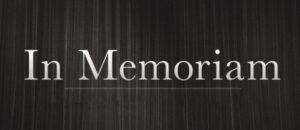6 July, 2025
Professor Joan Mellen
 Professor Joan Mellen: prolific and distinguished author, historian, and educator; an authority on Jim Garrison and his investigation of President Kennedy’s assassination which caused ripples and reverberations within the federal government’s halls of power; she was the bestselling author of twenty-five books, including A Farewell to Justice, her biographical study of Jim Garrison’s New Orleans investigation. She has written for a variety of publications, including the New York Times, Los Angeles Times, Philadelphia Inquirer, and Baltimore Sun. Professor Mellen was a professor of English and creative writing at Temple University in Philadelphia. In 2004, she was awarded one of Temple University’s coveted “Great Teacher” awards for outstanding achievement.
Professor Joan Mellen: prolific and distinguished author, historian, and educator; an authority on Jim Garrison and his investigation of President Kennedy’s assassination which caused ripples and reverberations within the federal government’s halls of power; she was the bestselling author of twenty-five books, including A Farewell to Justice, her biographical study of Jim Garrison’s New Orleans investigation. She has written for a variety of publications, including the New York Times, Los Angeles Times, Philadelphia Inquirer, and Baltimore Sun. Professor Mellen was a professor of English and creative writing at Temple University in Philadelphia. In 2004, she was awarded one of Temple University’s coveted “Great Teacher” awards for outstanding achievement.
Genres: Film, Biography, American History, Novels. Career: Professor, Temple University, Philadelphia. Publications: A Film Guide to the Battle of Algiers, 1973; Marilyn Monroe, 1973; Women and Their Sexuality in the New Film, 1973; Voices from the Japanese Cinema, 1975; The Waves at Genji’s Door: Japan Through Its Cinema, 1976; Big Bad Wolves: Masculinity in the American Film, 1978; (ed.) The World of Luis Buñuel, 1978; Natural Tendencies, 1981; Privilege: The Enigma of Sasha Bruce, 1983; Bob Knight: His Own Man, 1988; Kay Boyle: Author of Herself, 1994; Hellman and Hammett, 1996.
Visit Professor Mellen’s Author Page at Amazon.
Her most recent works include Faustian Bargains: Lyndon Johnson and Mac Wallace in the Robber Baron Culture of Texas, and Blood in the Water: How the US and Israel Conspired to Ambush the USS Liberty.
Newly Published: “Sherlock Being Catfished,” a Memoir by Joan Mellen
Joan Mellen has a new book, “Sherlock Being Catfished,” a memoir and departure from her usual works, with many references to JFK assassination research.
Personal Appreciation
* * *
From our most esteemed colleague, Malcolm Blunt:
“She was a force of nature and a force to be reckoned with. No two people are the same, but in a way, I am reminded of Harry Livingstone: a person who wrestled with his ‘demons.’ Both of them suffering a difficult past…..sometimes the ‘demons’ won and sometimes the ‘demons’ lost.
Joan could be at the extreme end of anything, but was also the kindest soul. She was a very dear friend and colleague who contributed a great deal and whose legacy to the JFK research community will be increasingly recognized and appreciated over the years to come. Joan Mellen, a lady our French friends would describe as, ‘une grande dame.'”
* * * * * * * * * * *
Dr. Cyril H. Wecht
1931 – 2024
 Dr. Cyril H. Wecht, an indefatigable force of nature who defined his life through action and integrity, has died at the age of 93. America’s most prominent forensic pathologist, Dr. Wecht consulted on many high-profile cases and was perhaps best known as an articulate and passionate critic of the JFK autopsy and of the lone assassin findings of the Warren Commission. He was past president of both the American Academy of Forensic Sciences and the American College of Legal Medicine and sat on the board of trustees of the American Board of Legal Medicine. He served in Pittsburgh, Pa. at various times as County Commissioner, Allegheny County Coroner & Medical Examiner. He was the distinguished Professor of Pathology at Carlow University. High-profile cases he worked on include Senator Robert F. Kennedy, Sharon Tate, Brian Jones, The Symbionese Liberation Army shootout, President John F. Kennedy, The Legionnaires’ Disease panic, Elvis Presley, Jon Benét Ramsey, Dr. Herman Tarnower (the Scarsdale diet guru), Danielle van Dam, Sunny von Bülow, the Branch Davidian incident, Vincent Foster, Laci Peterson and most recently Daniel and Anna Nicole Smith. During his career, Dr. Wecht performed more than 14,000 autopsies. He was a clinical professor at the University of Pittsburgh School of Medicine and an adjunct professor of law at Duquesne University. He served on the U.S. House of Representatives Select Committee on Assassinations, Forensic Pathology Panel, and participated as a consultant for Oliver Stone’s 1991 film JFK. In 1982 he was the Democratic candidate for the U.S. Senate opposing John Heinz. Wecht fiercely contested the official government conclusion that a single bullet caused seven non-fatal wounds to President Kennedy and Governor Connally and emerged in nearly pristine condition. In the fall of 2000, the Duquesne University School of Law established the Cyril H. Wecht Institute of Forensic Science and Law. He was founder and president of Citizens Against Political Assassination (CAPA). He was a dedicated and inspiring educator, speaker; an advocate of reason and principle who played a visible and leading role within the JFK assassination research community.
Dr. Cyril H. Wecht, an indefatigable force of nature who defined his life through action and integrity, has died at the age of 93. America’s most prominent forensic pathologist, Dr. Wecht consulted on many high-profile cases and was perhaps best known as an articulate and passionate critic of the JFK autopsy and of the lone assassin findings of the Warren Commission. He was past president of both the American Academy of Forensic Sciences and the American College of Legal Medicine and sat on the board of trustees of the American Board of Legal Medicine. He served in Pittsburgh, Pa. at various times as County Commissioner, Allegheny County Coroner & Medical Examiner. He was the distinguished Professor of Pathology at Carlow University. High-profile cases he worked on include Senator Robert F. Kennedy, Sharon Tate, Brian Jones, The Symbionese Liberation Army shootout, President John F. Kennedy, The Legionnaires’ Disease panic, Elvis Presley, Jon Benét Ramsey, Dr. Herman Tarnower (the Scarsdale diet guru), Danielle van Dam, Sunny von Bülow, the Branch Davidian incident, Vincent Foster, Laci Peterson and most recently Daniel and Anna Nicole Smith. During his career, Dr. Wecht performed more than 14,000 autopsies. He was a clinical professor at the University of Pittsburgh School of Medicine and an adjunct professor of law at Duquesne University. He served on the U.S. House of Representatives Select Committee on Assassinations, Forensic Pathology Panel, and participated as a consultant for Oliver Stone’s 1991 film JFK. In 1982 he was the Democratic candidate for the U.S. Senate opposing John Heinz. Wecht fiercely contested the official government conclusion that a single bullet caused seven non-fatal wounds to President Kennedy and Governor Connally and emerged in nearly pristine condition. In the fall of 2000, the Duquesne University School of Law established the Cyril H. Wecht Institute of Forensic Science and Law. He was founder and president of Citizens Against Political Assassination (CAPA). He was a dedicated and inspiring educator, speaker; an advocate of reason and principle who played a visible and leading role within the JFK assassination research community.
* * *
LISTEN to Alan Dale’s JFK Conversation with Dr. Wecht by clicking HERE.
CLICK HERE TO READ Cyril Wecht and the Magic Bullet by Dr. Donald B. Thomas.
* * * * * * * * * * *
8 May, 2024
Adam Walinsky
1937 – 2023
Attorney, speechwriter and aide to Senator Robert F. Kennedy. A proponent of peace, a passionate advocate for civil rights and progressive social policies, whose eloquence and idealism equaled his directness and pragmatism. He was perceived by many to have been to RFK what Ted Sorensen was to President Kennedy. Many of his words and phrases will live in perpetuity. He is credited with primary authorship of Senator Edward M. Kennedy’s eulogy of his brother, delivered at St. Patrick’s Cathedral, 8 June, 1968:
My brother need not be idealized, or enlarged in death beyond what he was in life; to be remembered simply as a good and decent man who saw wrong and tried to right it, saw suffering and tried to heal it, saw war and tried to stop it. Those of us who loved him, and who take him to his rest today, pray that what he was to us and what he wished for others, will some day come to pass for all the world. As he said many times, in many parts of this nation, to those he touched and who sought to touch him, ‘Some men see things as they are and say, why? I dream things that never were and say, why not?’
Click on this title for AARC Board member David Talbot’s remembrance: Adam Walinsky, Restless in Peace
* * * * * * * * * * *
30 January, 2021

Professor Gerald D. McKnight
1932 – 2021
[Courtesy of John Simkin’s Spartacus Educational]

Gerald D. McKnight was born on 12th October, 1932. He served in the United States Army during the Korean War. He later became professor of history at Hood College, where he became chair of the History and Political Science Department. David R. Wrone has commented: “Noted for his outstanding character and gentle manners, the faculty held him in great respect, with administrators knowing he was a rock that they could depend upon, whose fair judgments and consistently sound collegiate outlook they could rest assured to find in his apt comments, good advice, and proper actions. But his greatest noted quality as a professor came in his love of teaching, which was marked by splendid lectures infused with inspiring principles and insights. His enlightening courses lit the path for the life journey of generations of students.”
An expert on Martin Luther King in 1998 he published his first book, The Last Crusade: Martin Luther King Jr., the FBI and the Poor People’s Campaign. McKnight became involved in researching the assassination of John F. Kennedy as a result of his friendship with Harold Weisberg. He told History News Network in 2005: “Harold Weisberg, who was a friend and neighbor of mine, wrested from the government under FOIA (Freedom of Information Act) almost 300,000 pages of documents and records pertaining to the JFK assassination. I had complete access to his archive, and today the Weisberg Archive is housed at my teaching institution, Hood College in Frederick, Maryland. I am a co-director of the archive – the largest private and accessible collection of government documents on the Kennedy assassination in the world.”
McKnight published Breach of Trust: How the Warren Commission Failed the Nation and Why in 2005. AB pointed out: “The commonly accepted view is that the Warren Commission was a prisoner of its sources (i.e. the FBI) and that, coupled with a notable lack of general curiosity… resulted in the Report that declared Oswald a lone, mad assassin. Yes, so the argument goes, they could have asked more questions, but there were restraints of time and money and they had to go down the one and only avenue that was open to them – an avenue carefully contoured by Hoover and his agency. What McKnight documents fully and exhaustively is that Chief Justice Earl Warren and his fellow commissioners were complicit from the get-go in the lone assassin theory. Their job was to substantiate what had already been decided over the weekend of 23 and 24 November by Lyndon B. Johnson and J. Edgar Hoover. But their ‘crime’ was even worse than this, they knew that they were bolstering a lie. Their job was certainly not to go where the evidence night lead them… Now, we may have guessed that this is what happened but here we have McKnight proving it and we only had to wait 42 years. A long time in politics, yes, and a short time in history.”
The journalist and historian, David Talbot, has argued that “Breach of Trust, remains the best dissection of the notorious JFK assassination… he simply followed the path of his honest scholarship, even when it was widely considered politically and (academically) incorrect. His book on the willful failings of the Warren Commission – which should have been called the Dulles Commission because of ex-CIA chief (and Kennedy-hater) Allen Dulles’s huge influence over the panel – still ranks as one of the Top 10 books on the Kennedy assassination.”
Gerald D. McKnight died at a Health Center/Retirement Home in Lawrence, Kansas, on 30th January, 2021.
* * *
LISTEN to Alan Dale’s JFK Conversation with Professor McKnight by clicking Here.
* * * * * * * * * * *
2 May, 2021

Professor John McAdams
1945 – 2021
 One wonders why these agencies were so obsessed with the critics, no?
One wonders why these agencies were so obsessed with the critics, no?
Maybe we have mirror image attitudes here. As the “critics” did not merely think they were trying to solve a crime, but rather were in a battle for the soul of America (which had become corrupt) . . .
. . . maybe some of the people in security agencies thought they were fighting for the soul of America, which had become besmirched by the corruption of conspiratorial thinking.
In other words, maybe people on both sides invested the issue with a huge moral significance, and therefore acted in ways that no sober citizens or unbiased investigators should have.
He was informed on his positions and presented them well.

